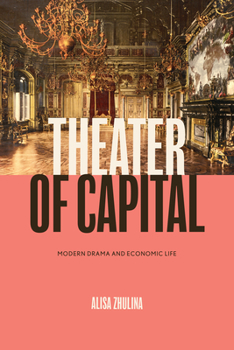Theater of Capital: Modern Drama and Economic Life
Select Format
Select Condition 
Book Overview
Reads canonical works of modern drama in relation to the economic ideas of their era Emerging amid the turbulent rise of market finance and wider socioeconomic changes, modern drama enacted vital critiques of art and life under capitalism. Alisa Zhulina shows how fin-de-si cle playwrights such as Henrik Ibsen, August Strindberg, Anton Chekhov, George Bernard Shaw, and Gerhart Hauptmann interrogated the meaning of this newly coined economic concept. Acutely aware of their complicity in the system they sought to challenge, these playwrights staged economic questions as moral and political concerns, using their plays to explore the theories of Adam Smith, Karl Marx and Friedrich Engels, Max Weber, and others within the boundaries of bourgeois theater. Theater of Capital: Modern Drama and Economic Life reveals the prescient and unsettling visions of life in a new financial and societal reality in now-canonical plays such as A Doll's House, Miss Julie, and The Cherry Orchard, as well as in lesser-known and long-overlooked works. This wide-ranging study prompts us to reevaluate modern drama and its legacy for the urgent economic and political questions that haunt our present moment.
Format:Paperback
Language:English
ISBN:0810146347
ISBN13:9780810146341
Release Date:January 2024
Publisher:Northwestern University Press
Length:296 Pages
Weight:0.95 lbs.
Dimensions:0.7" x 6.0" x 9.8"
Customer Reviews
0 rating





